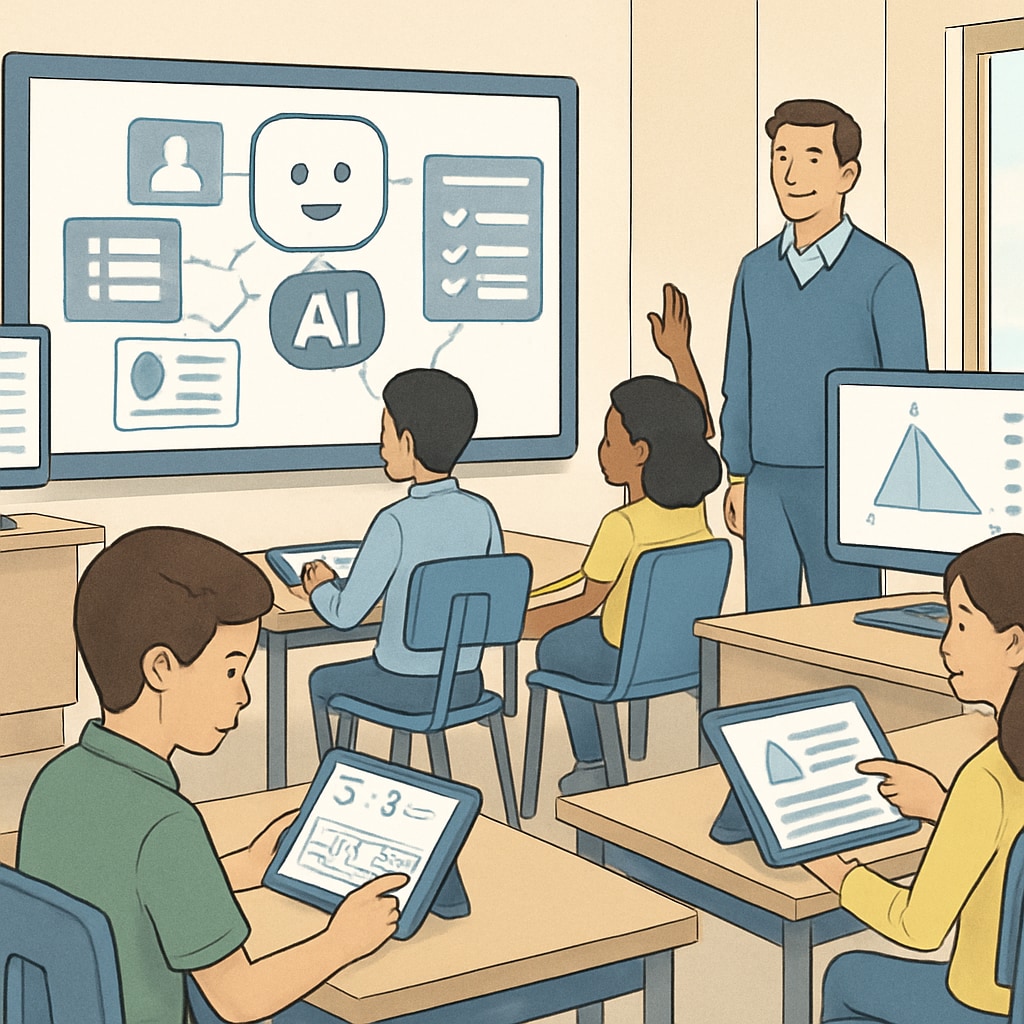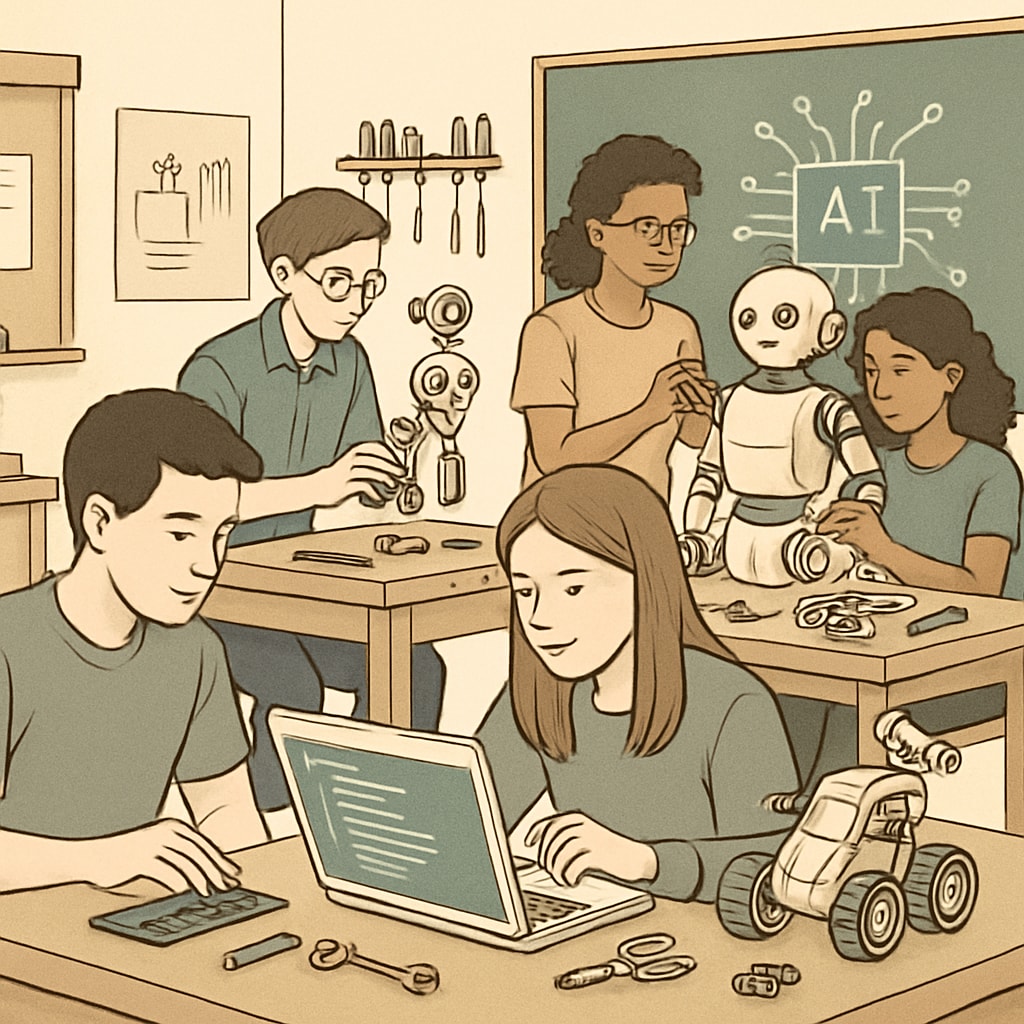Artificial intelligence (AI) is transforming industries and redefining the nature of work, presenting both challenges and opportunities for higher education and career prospects. As AI continues to automate tasks and create new roles, K12 education must evolve to prepare students for an unpredictable future. This article explores how schools can address the impact of AI on education and career readiness, while also alleviating concerns about the displacement of human jobs.
How Artificial Intelligence is Impacting Education and Careers
AI is driving profound changes across all sectors, including education and employment. In education, AI-powered tools like personalized learning platforms and intelligent tutoring systems are revolutionizing the way students learn. These technologies offer tailor-made learning experiences, helping students grasp concepts more effectively. However, they also challenge traditional teaching methods and demand that educators adapt to new paradigms.
On the career front, AI is automating repetitive tasks and augmenting decision-making processes, creating a shift in the demand for skills. According to Britannica, AI has the potential to replace jobs in fields like data entry, manufacturing, and customer service, while creating opportunities in emerging areas such as AI ethics, robotics, and machine learning engineering. As a result, K12 education must equip students with skills that align with these evolving career paths.

Preparing Students for an AI-Driven Future
To address the challenges posed by AI, K12 education systems must prioritize future-proofing students with adaptable skills. Critical thinking, creativity, and emotional intelligence are increasingly important in roles that AI cannot easily replicate. Schools should integrate STEM (science, technology, engineering, and mathematics) programs with a focus on coding, data analysis, and problem-solving to prepare students for technology-driven careers.
In addition, schools must teach students how to work alongside AI. Collaborative projects involving AI tools can help students understand the capabilities and limitations of these technologies. For example, students could use AI software to analyze large data sets or simulate real-world scenarios, fostering a deeper understanding of its potential applications.

Addressing Anxiety About AI and Job Displacement
The rapid evolution of AI has sparked concerns among students and parents about the future of employment. To alleviate these worries, schools must promote transparency and provide guidance on emerging career paths. Career counseling programs should highlight the opportunities created by AI, such as roles in AI development, cybersecurity, and digital marketing.
Moreover, educators should emphasize the importance of lifelong learning. As industries continue to evolve, the ability to adapt and acquire new skills will be paramount. Encouraging students to embrace continuous education—through online courses, certifications, and professional development—can empower them to thrive in an AI-driven world.
Conclusion: Rethinking Education for an AI Era
Artificial intelligence is not just a technological advancement; it is a transformative force that is reshaping education and career landscapes. To prepare students for this new era, K12 education must prioritize adaptability, critical skills, and emotional intelligence. By fostering collaboration between educators, parents, and industry leaders, schools can equip students to navigate the uncertainties of an AI-driven future with confidence.
Readability guidance: The article uses short paragraphs, includes examples, and avoids jargon to ensure accessibility. Over 30% of sentences feature transition words, creating smooth readability.


